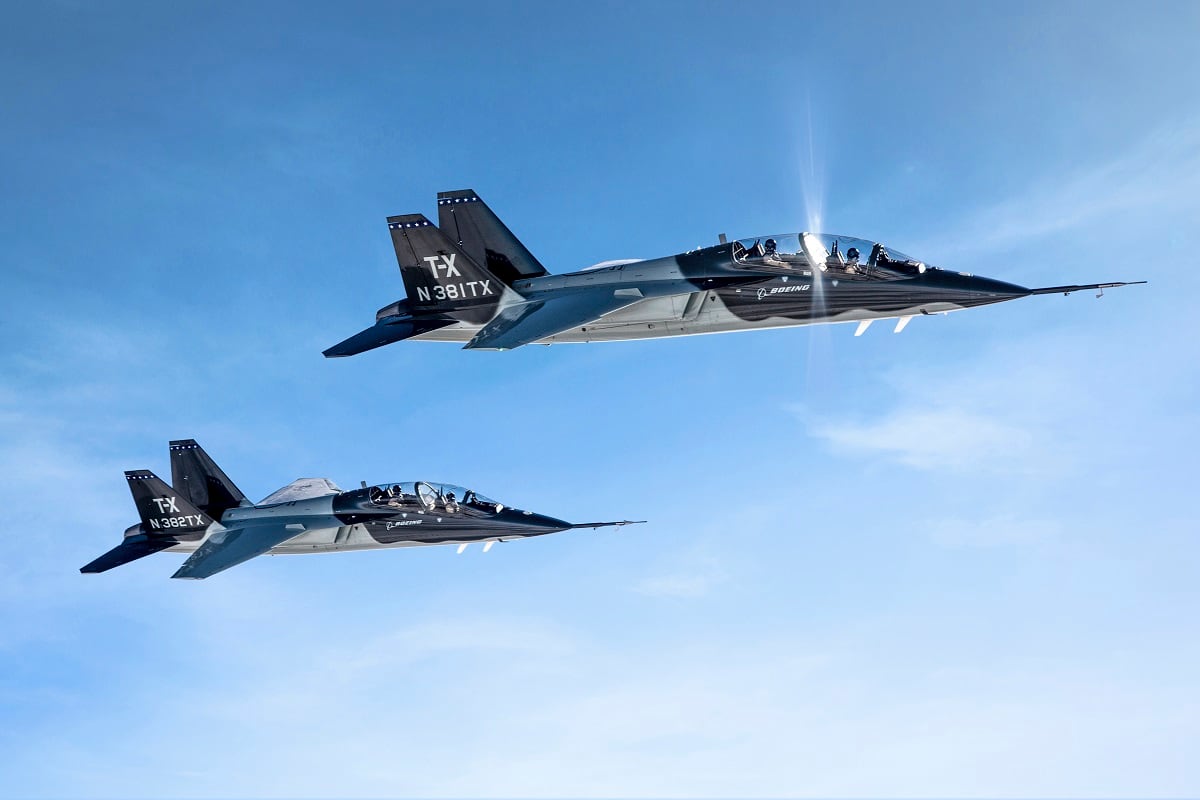WASHINGTON — Losing three major programs over the course of about a month wasn’t an easy pill to swallow for Lockheed Martin. But winning them could have been even more detrimental to the company, resulting in a loss of more than $5 billion, its chief executive said Tuesday.
During a Oct. 23 earnings call with investors, Lockheed CEO Marillyn Hewson said that the company would have incurred massive losses if it had matched the winning bids put forward by Boeing on three major defense programs — likely the Air Force’s T-X trainer competition, its UH-1N Huey helicopter replacement and the Navy’s MQ-25 tanker drone.
“We believe our proposals represented outstanding technical prices and our lowest possible pricing,” she said. However the losses would have been an outcome “that we do not feel would be in the best interests of our stockholder or our customers.”
RELATED

In late August, Boeing received $805 million for a contract to develop and build four MQ-25 drones. That award was followed a month later by a $2.38 billion contract for Huey replacement helicopters, which the Air Force estimates shaved $1.7 billion of the projected value of the program. Then, just days later, Boeing nabbed another victory, this time a $9.2 billion award for T-X that basically cut the Air Force’s $19.7 billion cost estimate in half.
Lockheed was the only company that vied against Boeing in all three competitions. It declined to protest Boeing’s wins — as did all other losing vendors — likely because Boeing’s aggressive bidding strategy and willingness to accept risk resulted in a low price other companies couldn’t match.
Asked by one analyst whether Boeing’s “low-ball bids” could impact the outlook for future sales, Hewson said she couldn’t project how other companies would bid, but noted that Lockheed had observed an increased emphasis on affordability by the Defense Department — and a proclivity toward lowest price technically acceptable solutions.
Lockheed’s Chief Financial Officer Bruce Tanner said that it was “disappointing” the three major losses occurred because the Defense Department chose a winner based on price, adding that such an approach doesn’t always allow for the best technology to make its way to the battlefield.
However, not all competitions adhere to the lowest-price technically acceptable approach, he said.
“I think I wouldn’t necessarily draw a long conclusion from three awards,” he said. “We frankly won some competitions where we weren’t the highest price. So I do know that you can automatically, as I said, draw a conclusion that, that’s necessarily a change from on every program that’s going to be competed going forward. So it’s not one-size-fits-all.”
Valerie Insinna is Defense News' air warfare reporter. She previously worked the Navy/congressional beats for Defense Daily, which followed almost three years as a staff writer for National Defense Magazine. Prior to that, she worked as an editorial assistant for the Tokyo Shimbun’s Washington bureau.








